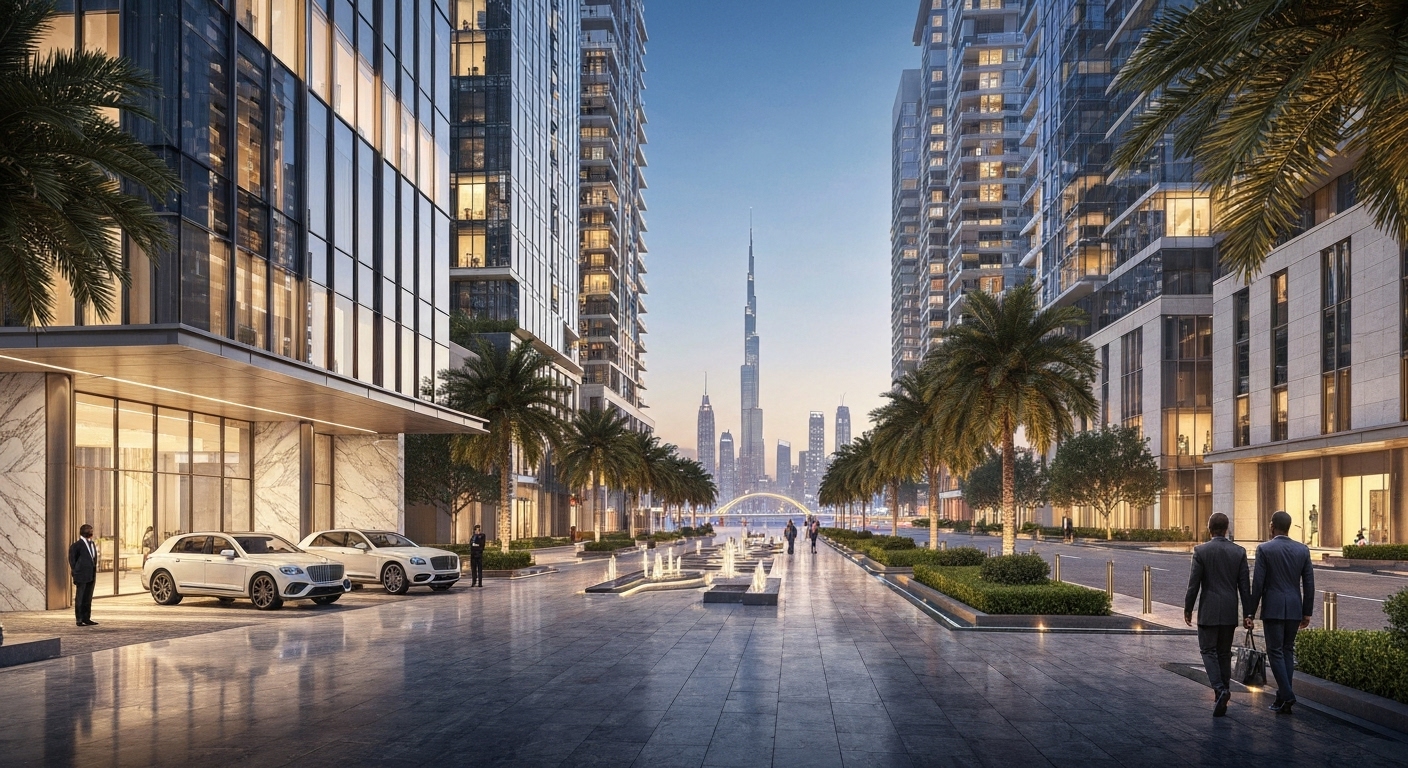For African high-net-worth individuals (HNIs) and entrepreneurs, the allure of Dubai’s dynamic real estate landscape has never been stronger. As we move into 2025, the Emirate’s evolving market is uniquely positioned to deliver lucrative opportunities that cater not just to international investors at large, but specifically to discerning African HNIs seeking stable, high-growth investment corridors. This comprehensive guide delivers actionable insights, legal considerations, and real-world success stories, unlocking the true potential of Dubai properties for African elites.
Why Dubai Remains a Premier Investment Hub for African HNIs in 2025
Dubai’s real estate market in 2025 stands out as a beacon for global wealth migration. Strategic policy reforms and bilateral agreements have made Dubai a prime midpoint between established Western economies and Africa’s burgeoning growth markets. African investors are attracted by:
- A diverse and mature real estate portfolio, offering everything from ultra-luxe branded residences to affordable luxury in emerging locales.
- Solid governance, robust legal frameworks, and investor-friendly regulations deliver peace of mind.
- Competitive yields and strong rental income potential.
Dubai’s unique ability to offer both high returns and global mobility benefits, such as long-term residency for property investors, heightens its appeal for African HNIs who value security and international accessibility.
Understanding the Unique Investment Landscape for African Investors
Unlike generalized global investment guides, the market recognizes several unique factors influencing African investors:
- Proximity and Connectivity: Direct flights and business links between major African cities and Dubai foster ease of access.
- Cultural Affinity: Dubai’s cosmopolitan environment and vibrant African communities provide comfort and a sense of belonging for African HNIs.
- Wealth Preservation: As global economic centers shift, Dubai’s stable market serves as a robust safeguard against volatility in certain African markets.
Specialized support for regional nuances, such as banking requirements, community preferences, and long-term visa aspirations, is available for African investors.
Top Emerging Real Estate Corridors in Dubai for High Capital Growth
2025 unveils strategic investment corridors that promise exceptional capital growth:
1. Downtown Dubai:
The heart of luxury, with premium branded residences and proven capital appreciation.
2. Dubai Silicon Oasis:
An innovation hub attracting tech entrepreneurs and yielding strong rental returns.
3. Al Jaddaf and Jumeirah Village Circle (JVC):
Fast-growing communities renowned for modern lifestyle offerings and mid-segment investment value.
4. Dubai South and Expo City:
These zones benefit from world-class infrastructure and mega-project spillover effects, catering to both commercial and residential demand.
According to the Dubai Land Department, several zones, including Dubai Marina and Al Barsha South Fourth, recorded remarkable performances in transaction value and volume during H1 2025, highlighting their potential for high capital growth.
A curated portfolio of projects in these key corridors ensures African HNIs gain access to the fastest-growing investment zones.
Strategic Considerations and Due Diligence for African HNIs
To maximize returns and mitigate risks, African investors should consider:
- Evaluating market maturity and historical growth patterns of the chosen corridor.
- Engaging in comprehensive due diligence, including title verification and developer reputation.
- Assessing payment flexibility, flexible payment plans designed to optimize cash flow are available.
- Partnering with developers who prioritize on-time delivery and post-sale support.
Working with experienced professionals ensures African HNIs make informed, future-proof investments amidst Dubai’s evolving regulatory and fiscal environment.
Navigating Legal & Financial Frameworks: A Guide for African Investors
Dubai’s property market is underpinned by transparency and investor-friendly procedures. Key considerations for African HNIs include:
1. Ownership Structures:
Freehold properties in designated zones offer full ownership rights to international buyers, including Africans.
2. Residency Incentives:
Real estate investments above the AED 2 million threshold can qualify African HNIs and their families for a renewable Golden Visa, enhancing lifestyle and business prospects.
3. Cross-Border Banking:
Established African investors benefit from Dubai’s robust banking sector, with straightforward remittance and repatriation processes.
4. Tax Efficiency:
With zero property tax and no capital gains tax for individuals, Dubai secures more of your returns compared to many competing international destinations (Global Property Guide).
Legal advisory partners can guide clients through every regulatory nuance, from due diligence checks to final registration, ensuring a seamless and secure experience.
Success Stories: African HNI Investments in Dubai’s Real Estate
Several African HNIs have already capitalized on Dubai’s premier locations:
- A leading Kenyan entrepreneur acquired multiple units in JVC, realizing over 15% capital appreciation in just 18 months.
- A Nigerian investor’s strategic investment in Al Jaddaf translated into immediate rental yields and enhanced business mobility via golden residency.
- South African business families are securing Dubai residences as long-term asset havens, blending lifestyle benefits with robust returns.
In Q2 2025 alone, Dubai property transactions rose by 82% compared to Q2 2023, reflecting the city’s sustained appeal for international investors, including African HNIs (Provident Estate).
These real-life success stories confirm the tangible advantages available to African investors who engage with strategic projects and seize the right moment.
Partnering with a Developer: Your Gateway to Dubai’s Investment Success
Selecting developers with well-located, market-ready projects, flexible payment plans, and a track record of on-time delivery can enhance ROI and long-term investment sustainability for African HNIs.




